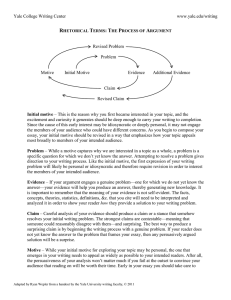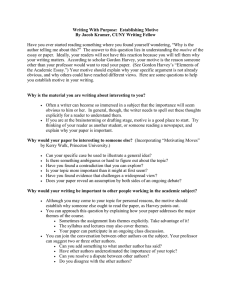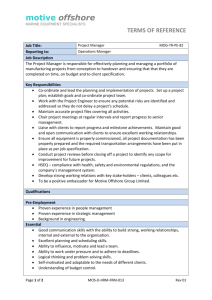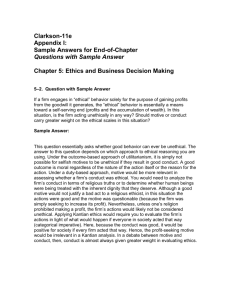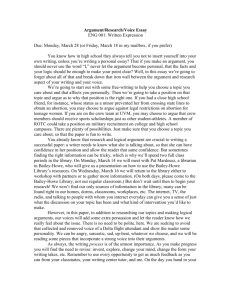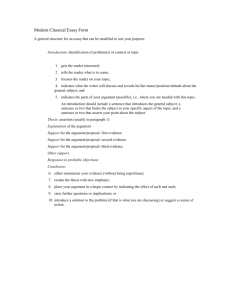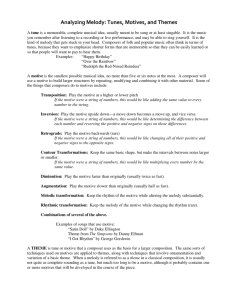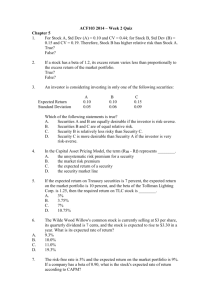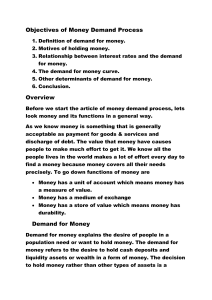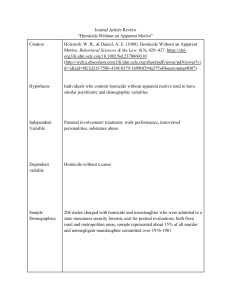Motive Worksheet Harvard
advertisement
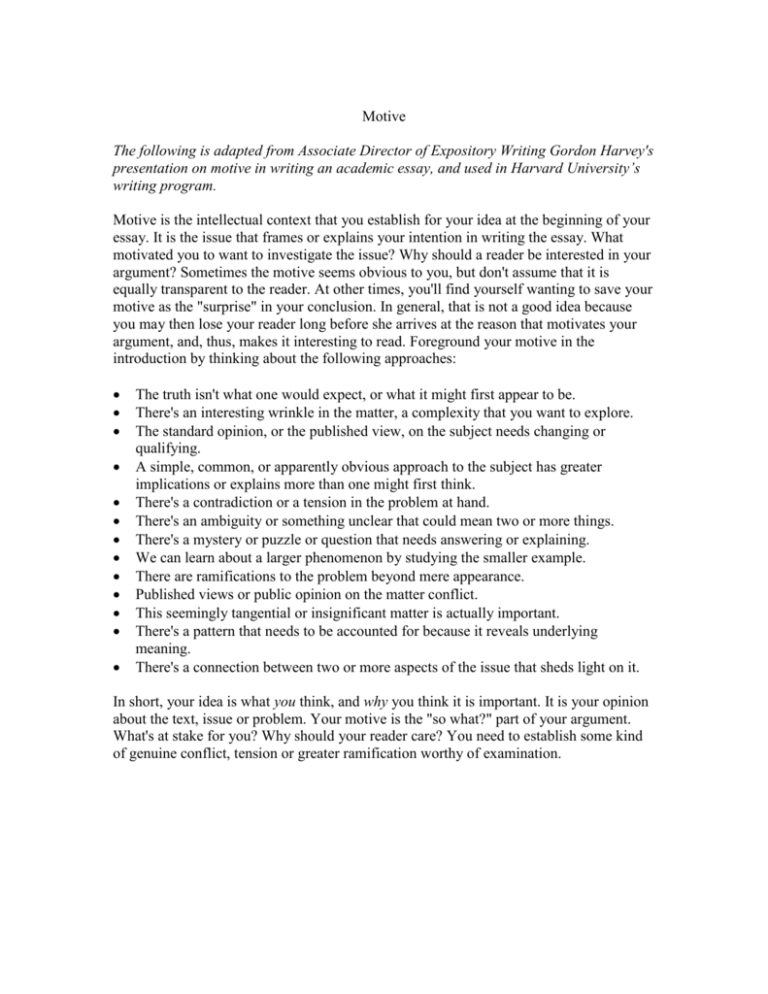
Motive The following is adapted from Associate Director of Expository Writing Gordon Harvey's presentation on motive in writing an academic essay, and used in Harvard University’s writing program. Motive is the intellectual context that you establish for your idea at the beginning of your essay. It is the issue that frames or explains your intention in writing the essay. What motivated you to want to investigate the issue? Why should a reader be interested in your argument? Sometimes the motive seems obvious to you, but don't assume that it is equally transparent to the reader. At other times, you'll find yourself wanting to save your motive as the "surprise" in your conclusion. In general, that is not a good idea because you may then lose your reader long before she arrives at the reason that motivates your argument, and, thus, makes it interesting to read. Foreground your motive in the introduction by thinking about the following approaches: The truth isn't what one would expect, or what it might first appear to be. There's an interesting wrinkle in the matter, a complexity that you want to explore. The standard opinion, or the published view, on the subject needs changing or qualifying. A simple, common, or apparently obvious approach to the subject has greater implications or explains more than one might first think. There's a contradiction or a tension in the problem at hand. There's an ambiguity or something unclear that could mean two or more things. There's a mystery or puzzle or question that needs answering or explaining. We can learn about a larger phenomenon by studying the smaller example. There are ramifications to the problem beyond mere appearance. Published views or public opinion on the matter conflict. This seemingly tangential or insignificant matter is actually important. There's a pattern that needs to be accounted for because it reveals underlying meaning. There's a connection between two or more aspects of the issue that sheds light on it. In short, your idea is what you think, and why you think it is important. It is your opinion about the text, issue or problem. Your motive is the "so what?" part of your argument. What's at stake for you? Why should your reader care? You need to establish some kind of genuine conflict, tension or greater ramification worthy of examination.
